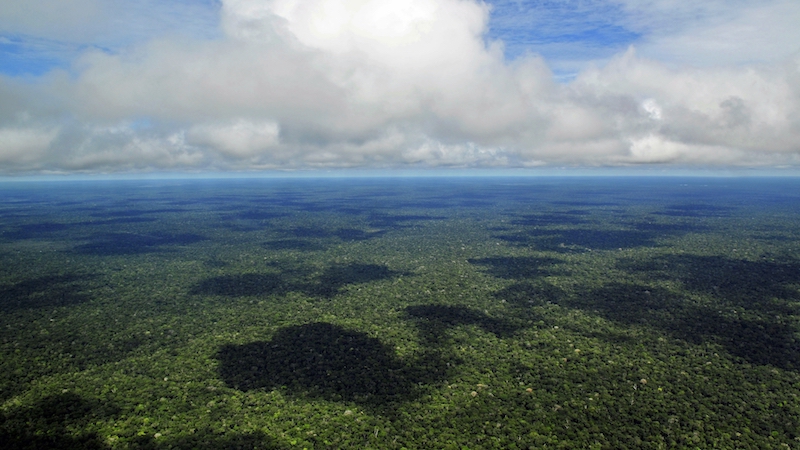The top EU trade official defended the blockbuster deal between the bloc and major South American partners on Wednesday, insisting it binds Brazil to the Paris Agreement on climate change.
In an interview with AFP, Cecilia Malmström said the EU-Mercosur treaty was a “good deal that does not sacrifice” European agriculture, hailing one of the last agreements under her mandate, which ends on October 31, after those reached with Japan and Canada.
Last month, after two decades of talks, the EU announced a preliminary trade agreement with Mercosur countries – Argentina, Brazil, Paraguay and Uruguay – one of the biggest such pacts ever negotiated.
Climate news straight to your inbox? Sign up here
Malmstrom, who led negotiations in the final stretch, has since faced a barrage of criticism, notably by European farmers afraid of a flood of beef imports and environmentalists alarmed over Brazil’s rampant deforestation of the rain forest.
At the centre of these concerns is Brazil’s far-right president Jair Bolsonaro, an unabashed climate change sceptic who has ramped up deforestation and threatened to follow Washington by dumping the climate accord.
This trade agreement “does not mean that we agree with all the policies of these countries, but it is a way to anchor Brazil in the Paris Agreement,” Malmstrom said.
A brutal murder reveals the chaos spreading in Bolsonaro’s Amazon
US president Donald Trump “tries to get other political leaders to join him and leave the Paris Agreement. Here, president Bolsonaro chose, and came with us,” she said.
Pressured by France, Malmstrom and her teams made adherence to the Paris climate deal a condition of the trade deal, a position Brussels says will now apply to all such pacts. Under the Paris accord, Brazil is committed to delivering 12 million hectares of reforestation in the Amazonian forest that plays a crucial role in regulating the earth’s climate.
On Monday, Reuters reported Brazil’s vice president Hamilton Mourao said he now considered it “impossible” for Brazil to leave the Paris Agreement.
Malmstrom acknowledged that the deal faces a torturous ratification process, with about 40 national or regional parliaments across Europe as well as the European Parliament needing to approve it.
While it is “hard to know… I believe that at least two years” will be necessary before implementation, she said. Malmstrom also staunchly criticised opponents to the deal, who had not read the agreement.
Bringing you news from around the world is expensive… We’re an independent news outlet dedicated to the most important global stories. If you can spare even a few dollars each month, it would make a huge difference to us. Our Patreon account is a safe and easy way to support our work.
“Some have not really read the agreement and spread rumours, false interpretations that frighten people,” she said.
“Those who work in agriculture today are worried about the future. That’s normal. But, in fact, agriculture is not sacrificed in the agreement,” she insisted.
For Europe, the deal would mean greater access to large South American automobile markets and respect for so-called protected geographical indications such as Cognac or Manchego cheese.
Mercosur countries in return hope to export up to 99,000 tonnes of beef to Europe a year before they have to pay tariffs, alongside stronger exports of ethanol, sugar and poultry.
